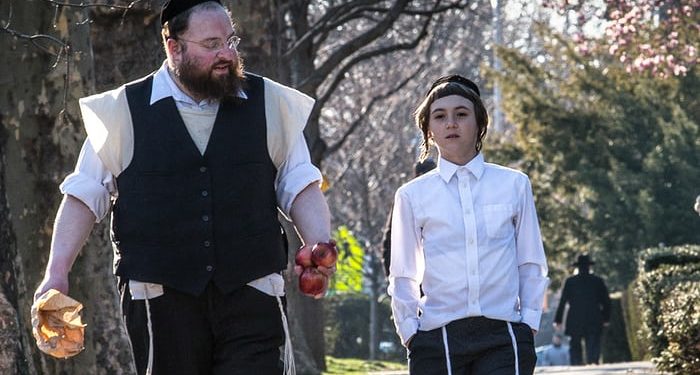Skewers loneliness to an almost uncomfortable degree
Even with the strictest sense of community, a tight-knit group can still strike a sharp note of loneliness in the individual. That’s certainly what Menashe (Mensashe Lustig) experiences, as the the titular protagonist in Joshua Weinstein’s film. Despite the emphasis on kinship, community and the preservation of shared traditions within his Yiddish community in Brooklyn, New York, Menashe is lonely, and about to lose the only thing that gives him reason to keep going.
Loosely based on the life of its lead actor, Menashe is a loving, if critical, ode to Yiddish life, a lifestyle and language that some say is in danger of being lost. Weinstein reportedly had to work very hard to get access to the community so that he could tell Lustig’s story. Having lost his wife, Menashe is pressured by the Yiddish elders, particularly his brother in law, to remarry. If he doesn’t, he will lose his son Rieven, who will go to live with his uncle. He has one week to prove he can be a good enough father to his son.
If that last bit sounds a little Hollywood, a little Big Daddy, a little too much like a typical tear-jerker, rest assured. Though the premise is familiar, Weinstein’s film is as idiosyncratic as the community it depicts. In fact, it’s so committed to telling the story authentically, without melodrama and without the typical underdog triumph narrative, it works against it, casting audiences with no frame of reference adrift in a sea of unrecognisable rituals and a difficult protagonist.
Spoken entirely in Yiddish, the film depicts things that won’t be familiar to anyone who doesn’t recognise them, and it refuses to explain them. What will bring in audiences are the little universal moments within these rituals. During a dinner table sing along, Menashe is drunk, clapping along boisterously. He knocks over his glass and it smashes, at which point his son Rieven leaves the room. We cut to Rieven calling his uncle in the hallway, asking if he can stay with him because ‘Menashe is drunk’.
Though you’re expected to sympathise with Menashe—and you will, his predicament is heartbreaking—he’s kind of a pathetic character. He feeds Rieven cake and soft drink for breakfast, he harshly scolds him on rituals he himself fails to follow and, in a moment that struck an uncomfortable note of recognition for me, Menashe is chastised by his boss in front of his son and winds up losing his job.
Menashe is a strange movie. It’s funny in moments, but the whole thing is too sad to laugh at. There are universal experiences, but, without the cultural affiliation with the religion, Menashe’s situation will make you wish he’d just chuck the whole cultuer and make some new friends. Of course, when your whole life is tied up in the community you were born into, this isn’t an option. It’s not an experience I understand, though, the ones who do are the ones who should see this movie.
- Tom
Tom Bensley is a freelance writer in Melbourne who reviews anything he attends, watches or reads. It’s a compulsion, really. Follow him @TomAliceBensley.
Menashe is now playing at the Nova Cinema




